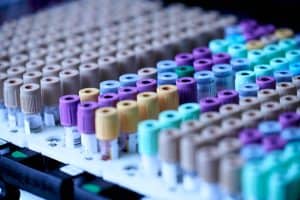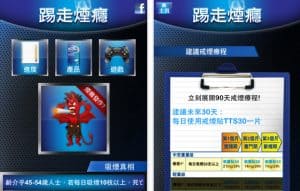
Blackberry creates cancer diagnostic tool
pharmafile | December 8, 2014 | News story | Medical Communications, Sales and Marketing | Blackberry, chen, diagnostic, nanthealth, passport, soon-shiong
Canadian smartphone maker Blackberry is entering the healthcare arena with a cancer diagnostic tool aimed at doctors and nurses.
Via a mobile diagnostic application on the firm’s Passport device, it says healthcare professionals can securely access cancer patients’ medical data from any location.
This is the first technology offering from Blackberry that has been developed with IT provider NantHealth, a healthcare company run by billionaire Patrick Soon-Shiong which it acquired a minority stake in during April.
Chief executive of Blackberry John Chen told Bloomberg that healthcare is a key target for BlackBerry, and that the first part of the deal with NantHealth is to connect doctors’ BlackBerrys with a NantHealth system that analyses tumours and recommends treatment options.
Said to be available early next year more applications are planned according to both firms. “We do have many hospitals and clinical groups that use our devices,” Chen says. “But what we’re talking here is much larger-scale if we become successful.”
This new offering is said to enable doctors to view and analyse biopsy test results as soon as they become available instead of waiting several weeks, where they may be forced to make treatment decisions without such data access.
The news arrives as Ontario-based BlackBerry is trying to revive slumping sales by developing mobile security software and services aimed at business clients, which follows an unsuccessful attempt last year to gain further traction in the consumer market.
It was just recently announced that General practitioners in the UK in fact are to begin ‘prescribing’ health apps as part of a move to better monitor issues such as weight and lifestyle.
Recent research from Frost & Sullivan even suggests that mobile telehealth could create ‘doctor-in-your-pocket’ convenience for patients – and perhaps take pressure off health services.
Mobile apps have also shown to be effective towards identifying bogus antimalarial treatments to help crack the fake market for such drugs; and engineers and doctors at the University of Washington (UW) have recently been developing an app that could help detect signs of jaundice in newborn babies.
There is perhaps less positive mHealth news for the consumer health market to date however, as analysts at IMS found that more than 90% of apps directly related to patient health and treatment on the Apple iTunes app store had limited functionality – and most are barely looked – with only five apps accounting for 15% of all downloads in healthcare.
Brett Wells
Related Content

Tempus receives FDA Breakthrough Device Designation for its companion diagnostic test
Tempus has announced that the US Food and Drug Administration (FDA) has granted it Breakthrough …

Digital Pharma: iPhone and iPad app update
How many iPads has Boehringer Ingelheim ordered for its sales force in Turkey? Do Novartis’ …

Digital Pharma: Pfizer, J&J and Merck withdraw iPhone apps
Big pharma companies have pulled a number of apps from the iTunes store, but it’s …






